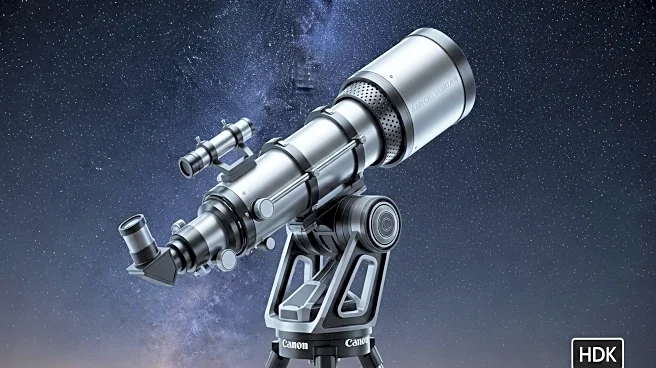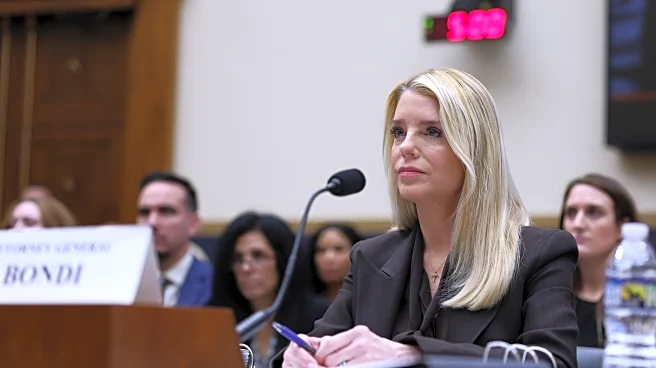What's Happening?
NASA is facing significant budget cuts to its science programs as proposed in the president's fiscal year 2026 budget plan. The Trump administration's budget suggests reducing NASA's funding from $24.9 billion in FY2025 to $18.8 billion, primarily affecting science programs. Key projects like the Mars Sample Return and the Chandra X-ray Observatory are at risk, with the Roman Space Telescope facing delays. In response, the Planetary Society, led by Bill Nye, organized a day of action on Capitol Hill, rallying support from 20 space organizations to oppose these cuts. The House and Senate appropriations committees have rejected the proposed reductions, maintaining funding levels close to the previous year, but the full chambers have yet to pass these budgets. The government shutdown has resulted in 15,000 NASA employees being furloughed.
Why It's Important?
The proposed budget cuts to NASA's science programs could have far-reaching implications for space exploration and scientific research. Bill Nye and other advocates argue that NASA's science initiatives offer substantial economic benefits and are crucial for advancing knowledge in areas where commercial interests are absent, such as extraterrestrial life and planetary phenomena. The cuts represent a potential existential threat to exploration, as private companies cannot fill the void left by reduced government funding. Maintaining NASA's science budget is essential for continued innovation and discovery, which contribute to the broader economy and scientific community.
What's Next?
The future of NASA's science funding remains uncertain as Congress has yet to finalize the budget for FY2026. The ongoing government shutdown complicates matters, with NASA employees on furlough and critical projects in limbo. Advocates like the Planetary Society will likely continue lobbying efforts to secure funding and prevent the proposed cuts. The outcome will depend on negotiations within Congress and the ability to pass a budget that supports NASA's scientific endeavors. Stakeholders in the space industry and scientific community are closely monitoring developments, as the resolution will impact future exploration and research capabilities.
Beyond the Headlines
The debate over NASA's budget highlights broader issues regarding the prioritization of scientific research in government spending. It raises ethical questions about the role of public funding in advancing knowledge and the potential consequences of deprioritizing exploration. The situation underscores the importance of advocacy and public engagement in shaping policy decisions that affect scientific progress and innovation.










